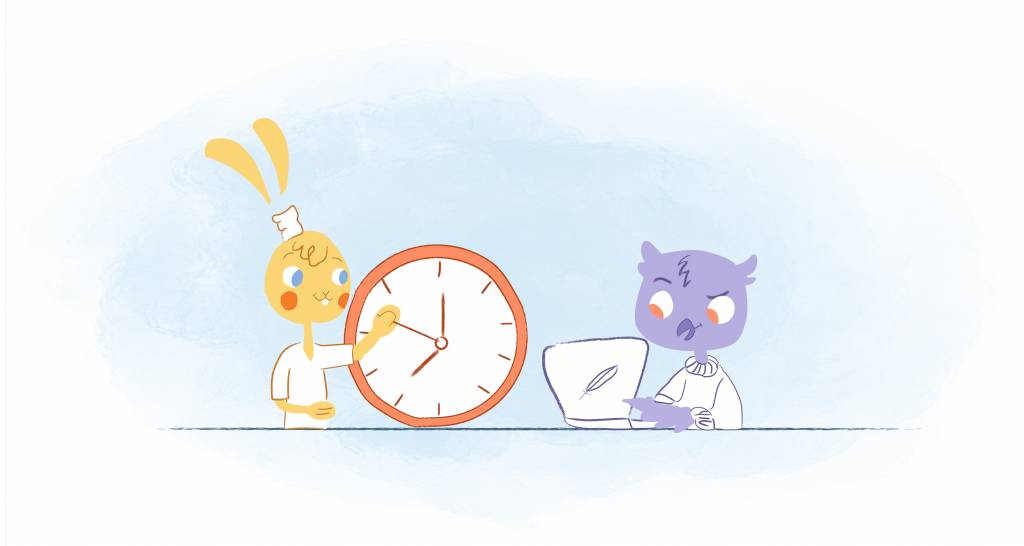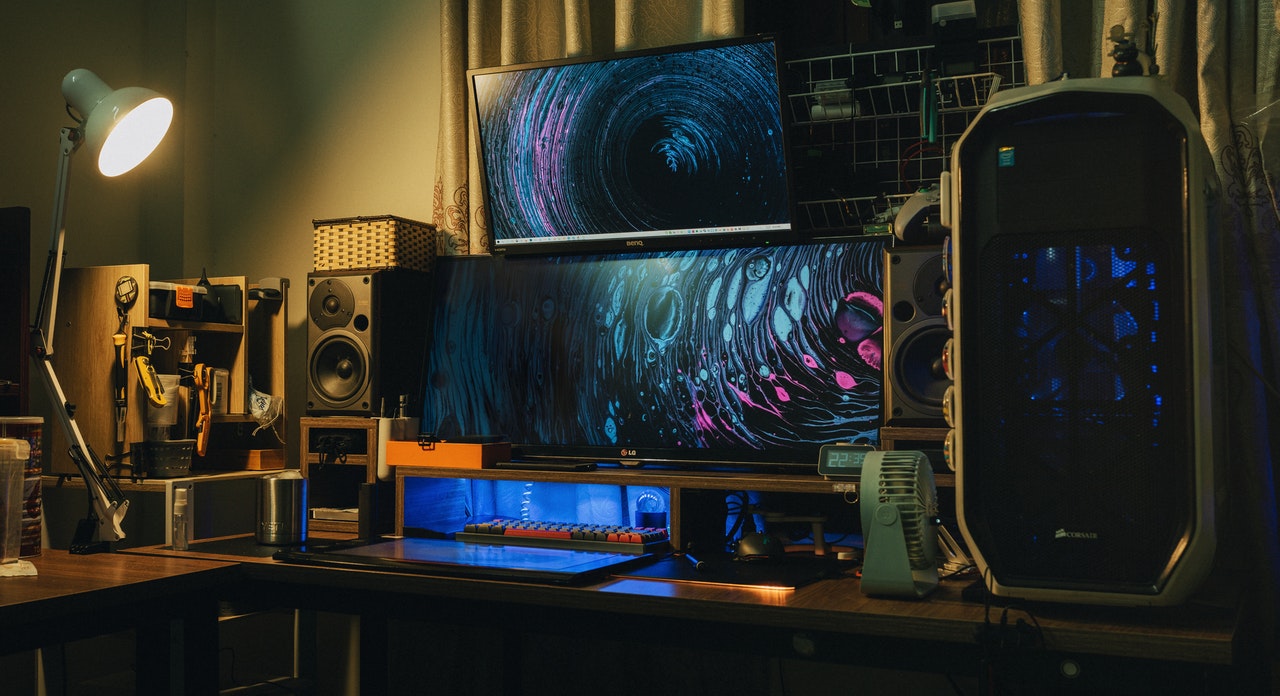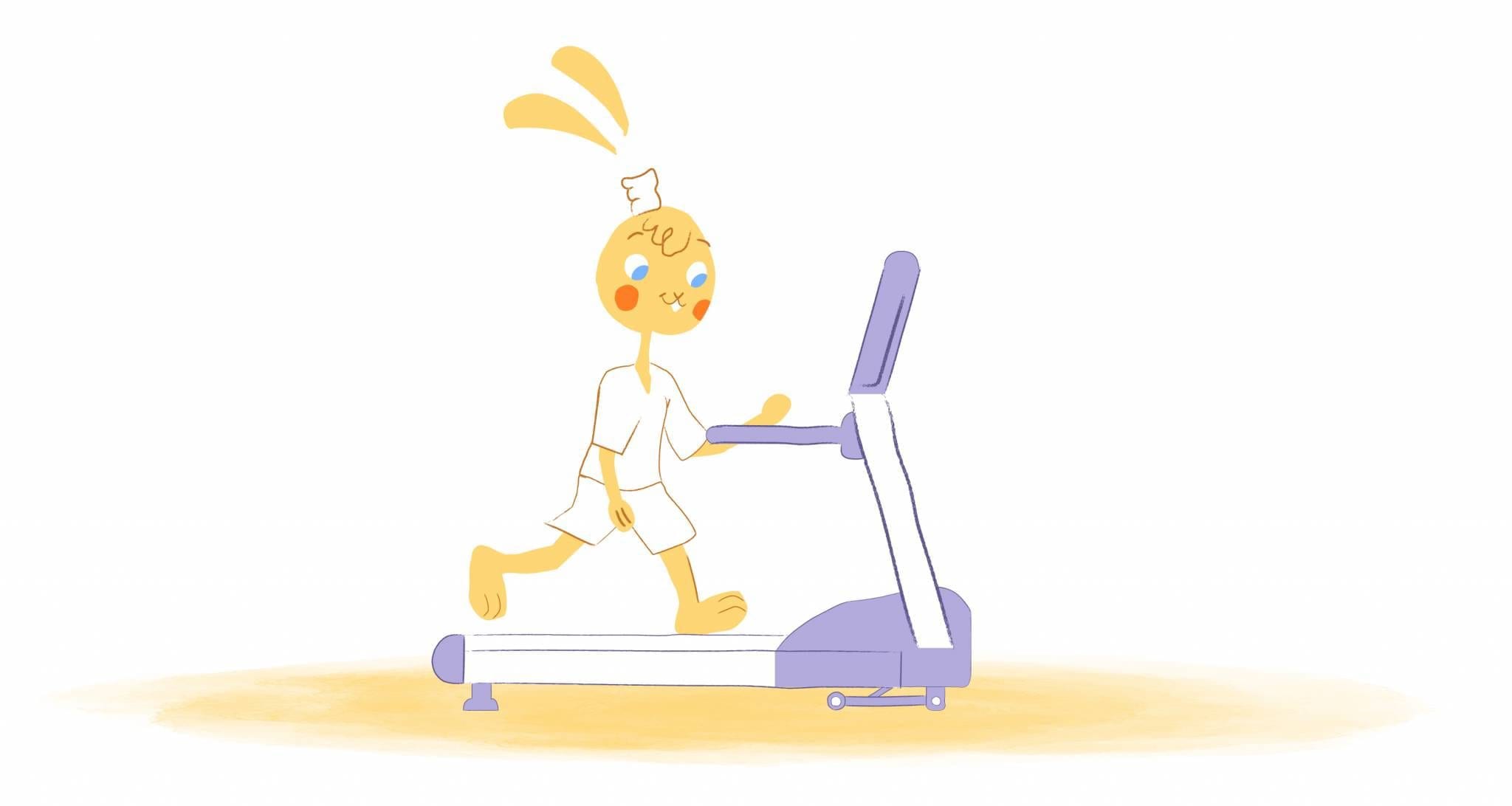

You don’t have to be a member of The Avengers to get more done each day. You just need to develop these powerfully effective productivity habits right now!
1. Get the right tools.
If you really want to step-up your productivity game, then you first need to surround yourself with the right tools. But, before just downloading a bunch of apps and software, take the time to think about the areas where you need assistance.
For example, do you waste several hours each week trying to schedule meetings? Those back-and-forth emails trying to figure out the ideal meeting time can prevent you from focusing on more important issues. Thankfully, there are scheduling tools like Calendar that can handle this for you.
Simply share your calendar via email or your website. The other party sees when you’re available and then they pick a date and time that works for them. The event is then added to everyone’s calendar automatically. Calendar taps into the power of machine learning, so it can even make suggestions. It can guide you where, when, and what type of meeting you should schedule – and about how long to schedule.
If you want to keep your inbox in check, then use SaneBox. Want to know where you’re wasting time online and when you’re most productive? Rescue TIme can share that info with you. Need to stop getting distracted by certain websites? StayFocused will do that for you.
So, think about where you want to improve your productivity — then look for the tools that can give you a hand with your goal.
2. Establish a nighttime and morning routine.
Your alarm clock goes off in the morning. You jump out of bed and hurriedly get ready before rushing out the door to work. If every morning is like that, then how productive do you think you’re going to be?
Every night take a few minutes and determine what you’re most important and urgent priorities are. Limit yourself to just two or three items to accomplish and jot these down. Write some notes (the steps) on how you’ll accomplish them, then set a schedule for tomorrow.
This way when you wake-up you know exactly what your day looks like beforehand. You have the actionable steps you’ll need to take to get everything done.
Speaking of routines, don’t forget to establish and stick to a morning routine. In a previous Calendar article, Renzo Costarella suggests that your morning look something like this:
- Wake-up before everyone else so that you get a head start on your day.
- Drink at least one 24 ounce glass of water. (I drink 16 ounces — I’d gag at 24 ounces — so know what’s best for yourself.)
- Avoid your phone and use this time for deep thinking and reflection.
- Exercise before breakfast.
- Skip the sugary food items and consume a healthy breakfast.
- Read.
- Practice mindfulness.
3. Stop “grinding it out.”
There’s a misconception that productive people are “on” 24/7. That couldn’t be further from the truth. If you want to be consistently productive then you need to take breaks in order to refocus and recharge. If not, you’ll just crash and burn.
After interviewing 15 startup founders in Silicon Valley, Paul Milano found that more than two-thirds “create planned times of intense work followed by times of rest.”
“I use conscious focus and then relaxation. I do a block of 30 to 90 minutes of heads-down work. Then I take a break of roughly 30 minutes,” says Sol Orwell, Founder of Examine.com told Milano. “Real focused work is incredibly powerful and most people just never do that. I’m not a big fan of grinding, as your out-put and quality suffer greatly.”
During your break you should go for a walk, meditate, or just blankly stare at the wall. They’re all great ways to clear your head, refocus, and reflect.
4. Declutter your workspace.
Clutter happens to the best of us. Scattered paperwork, business cards, and coffee mugs are some of the common culprits. But, are these things really preventing you from being productive or just a minor annoyance?
According to Josh Davis, PhD., author of Two Awesome Hours., it’s better to stop what you’re doing and tidy up your workspace. The reason is that your brain’s attention systems aren’t designed to “strictly to keep you focused.” Instead, they’re “designed to help you pick up on what’s changing, threatening, novel, and so on.”
“In other words, they help make sure we don’t miss what’s important in the environment,” says Dr. Davis. “In fact, staying focused too easily and for too long would pose an evolutionary threat. We’d die if we regularly concentrated so hard on a given task. We might fail to notice the people, cars, tigers, or falling objects coming at us. So we have these brain systems regularly scanning for something to shift attention onto.”
While there obviously aren’t any tigers prowling around on top of your desk — we do leave certain items out as reminders to complete certain tasks that we can’t tune out.
Choncé Maddox suggests that you take “some time to go through all the mess and toss what you no longer need. Reorganize what you decide to keep.” This could take just a couple of minutes to several hours, but this would be time well spent in the end.
5. Trim down your to-do-lists.
Productive people do love to make lists. Particular a daily list of “action items” that need to be accomplished. But note, productive people also keep these lists lean and mean. Try Calendly to help with this.
Remember, you only have around eight hours to get everything done in a workday. Do you think you’ll be able to get those 20 or 30 tasks on your to-do-lists completed by the end of the day?
6. Reflect on mistakes and grow.
If you haven’t done so yet, check out the best-selling book Mindsets by Carol Dweck. It focuses on the fixed vs. growth oriented routes of the brain.
Those with a fixed mindset accept defeat because they believe their skills or abilities are set-in-stone. On the other hand, those with a growth mindset believe skills and abilities can be learned.
If you experienced a setback or failure — don’t fixate on it. Instead, learn from the experience. For example, write down the 3 things that went wrong and how you plan to correct those mistakes so that you won’t fail again.
7. Outsource.
Let’s say you’re building a house. Since you’re an electrician, you can handle that part of the job. Even though you know the basics, you’re still going to hire professionals like plumbers and general contractors. This way you know that the house will be built correctly. You will focus on only your part of the job.
Productive people have that mentality on a daily basis — and you can teach yourself to do this too.
Some people only focus on what they excel at — and then outsource the rest. For example, hire a CPA to take care of all of your accounting needs, and a freelancer to manage your social accounts. Consider using services like Taskrabbit for everyday chores.
8. Level up your skills.
Always look for ways to develop or enhance your skills. This way you’ll be able to get more done in less time because you’re an expert. That explains why successful people — regardless if they’re athletes, authors, or business leaders — always thrive. They keep pushing themselves to be the best at what they do. And they work at getting better at what they don’t well, but have that as a goal.
If you haven’t thought about it yet, think about what skills you need to develop in order to help yourself achieve your goals. Develop a strategy on how you’ll develop this self-improvement.
9. Don’t multitask.
“The brain is not wired to multitask,” says Earl Miller, an expert on divided attention. Miller is also a neuroscientist at Massachusetts Institute of Technology. “When people think they’re multitasking, they’re actually just switching from one task to another very rapidly and every time they do, there’s a cognitive cost.”
Merely checking your email during mid-task can reduce your IQ by 10 points. (I don’t really believe this statistic — but, hey, I read it.)
Focus on just one thing at time and you’ll get things done more effectively and efficiently.
10. Sweat it out.
We all know that exercise is essential for your health. But, it can also boost productivity — even if you just go for a quick run.
Researchers from University of Otago in New Zealand found lab rats who ran for 20-minutes a day helped them with problem-solving. Further it upped the persistence, and strategy-execution skills higher than their non-exercised counterparts.
11. Always be on the lookout for productivity hacks.
Finally, productive people look for unique ways to shave seconds off common tasks, such as:
- Preparing your meals for the week on Sunday’s.
- Blocking off time on your calendar before anyone else does.
- Breaking your day into smaller blocks, instead of the one-hour default.
- Taking cat naps.
- Turning off phone notifications.
- Listening to ambient sounds when working, as opposed to pop music.
- Sitting by a window.
- Setting the thermostat between 70-77 degrees.
- Changing their environments, like coffee shops.
- Just doing a task immediately, if it takes under two minutes.
- Using techniques like the Pomodoro Technique, the 80/20 Principle, the Eisenhower Matrix, or Jerry Seinfeld’s “Don’t Break the Chain.”
It may not be much initially. But, eventually, this extra time adds up — it also will increase your speed, efficiency, and creativity.











Howie Jones
My name is Howie and I'm a Customer Success Manager at Calendar. I like to ensure our customers get the best experience using our product. If you have questions email me howie at calendar.com